Aziz Haniffa in Washington DC
Ron Somers, president, United States-India Business Council, will lead the largest-ever United States business and trade delegation to any country when a 200-plus member executive mission heads to Mumbai. The USIBC is hosting the Business and Entrepreneurship Summit there on November 6, being keynoted by US President Barack Obama.
Somers described it as "the pinnacle of our history," since the USIBC's founding 35 years ago. That Obama will kick-off his three-day trip to India keynoting the USIBC summit "distinguishes industry as foundational to the partnership between our two countries," he said.
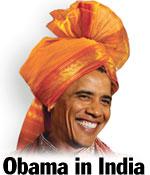
Somers said the summit - in partnership with the Department of Commerce, the Federation of Indian Chambers of Commerce and Industry and the Confederation of Indian Industry - would be held at the Trident Hotel, the old wing of the Oberoi Hotel at Nariman Point. "This is the largest public hall we could secure that holds just under 600 people."
The six-hour conference will kick off with welcoming remarks by USIBC chairman Terry McGraw, chairman and chief executive officer, McGraw Hill companies, followed by a speech by US Commerce Secretary Gary Locke and then an address by Finance Minister Pranab Mukherjee.
This will be followed by three discussions, including "some of America's and India's greatest titans of industry that will hopefully bring out the deliverables that will enable deeper US-India commercial relations," Somers said.
According to Somers, the first panel will be on the export of American products overseas to India and how this transfer of goods and services to India are "bolstering the American economy and enabling a wonderful bridge being developed between our two economies. That panel will include people that are buying American companies investing in the US, revitalizing companies here in the US, as well as American companies selling into India."
...
'We must not be retreating into the confines of protectionism'
Image: The Rashtrapati Bhavan.The second panel, Somers said, will be "about the challenges relating to implementation and how we can work through as partners to meet these implementation issues. And this is going to be an honest discussion. It's going to discuss the need to be collaborating more deeply in education, in health and health care, building up the work force of tomorrow, the regulatory challenges for both Indian and US companies doing business in either country."
The last panel, Somers said, will be "on the next generation of leadership and how technologies from America, that are now being applied in India in ways never before thought imaginable, that have leapfrogged technologies and enabled enhancements and productivity and efficiencies and the future of innovation and entrepreneurship."

The next day, the mission will leave for Delhi for another business summit which the USIBC is collaborating on with the CII and which will be addressed by Commerce and Industry Minister Anand Sharma, Infrastructure Minister Kamal Nath, Human Resources Development and Education Minister Kapil Sibal, Deputy Chairman of India's Planning Commission Montek Singh Ahluwalia and Chairman of India's Knowledge Commission Sam Pitroda.
On the US side, participating and addressing the summit will be Agriculture Secretary Tom Vilsack, Locke, US Under Secretary of International Trade Francisco Sanchez, and Dr Raj Shah, administrator, US Agency for International Development.
November 8, a select few of the American executives who are part of the US business delegation, including former USIBC chairman and current PepsiCo President and CEO Indra Nooyi, GE Chairman and CEO Jeffrey Immelt, Chairman of the US side of the US-India CEO's Forum David Cote, will attend the state dinner for Obama hosted by Indian President Pratibha Patel at Rashtrapati Bhavan.
...
'We must not be retreating into the confines of protectionism'
Image: US President Barack Obama.Somers said that in June, when it became known that the President would visit India this year, the USIBC board of directors "specifically formed a Presidential Task Force to organize the planning on what would be the issues that would shape the Presidential mission to India and would be the issues that industry should weigh in on."
Somers also disclosed that another emphasis of the USIBC's Presidential Task Force was a consensus on "pressing forward on the possibility of one day working toward a Free Trade Agreement between our two countries."

He said that on this Executive Mission there will be a number of college presidents "and we are very hopeful that we can advance a very special initiative of the US-India Business Council, which is our Higher Education Forum. Certainly many of our colleges and higher education institutions are interested in deepening their linkages with India."
How much of euphoria is there among your members over President Obama's visit to India, particularly those who are part of the Executive Mission who will be participating in the Business and Entrepreneurial Summit in Mumbai, November 6, which the President will keynote?
The size of the delegation speaks for itself. It is the largest delegation in United States history ever to leave the US on a business delegation for any country, and India is the target country. So, the enthusiasm is enormous and gratifying.
It means that the relationship now - the business-commercial relationship - has achieved an entirely new level and it's our job now to make certain that the US-India value proposition is front and center in every boardroom across the US.
...
'We must not be retreating into the confines of protectionism'
Image: A bank teller counting notes.Photographs: Reuters
In specific terms, what do you believe led to this unprecedented euphoria?

I credit the progressive pace of the Indian economic reform process since 1991.
The government of India and the captains of industry from India have done a beautiful job with the industry associates in positioning India as a partner and as a friend and that India is not perceived as a threat but as an opportunity to work in collaboration to shape the destiny of the 21st century.
When you look at other countries - at China, or back in the 1980s, Japan - those economies were perceived more as a threat whereas India really is now looking like a genuine partner.
And, of course, we hope that the purpose and the aim and the goal of this visit is that the US and India will achieve a genuine and true strategic partnership.
...
'We must not be retreating into the confines of protectionism'
Image: Nuclear power.There is palpable angst in the US business and industry over the nuclear liability bill passed in the Indian parliament. In a Center for New American Security report, Nicholas Burns made it very clear that the bill could jeopardise the entire deal, which was the centerpiece of the strategic partnership. India has said it will not amend the legislation. How do you get over this hump?
That's the blunt message. The blunt instrument is the black and white report that has just come out from Nick Burns and Richard Armitage and others.

But the bottom line is let's remember now this has been three-and-a-half decades of nuclear apartheid, which we worked very hard together in removing that cinder from the eye in the US-India relationship.
So, 35 years of this problematic issue that was interfering in the relationship, and now can we not be patient to put in place the full-scale implementation? I am convinced that this will be sorted out, but we need to leave both sides an opportunity to be able to address the issue with their respective constituencies, have the respect for one another, knowing that indeed already there has been an indication on the Indian side with the allotment of the nuclear parks for Westinghouse and GE that there is a sincere desire for US participation in India's civil nuclear buildup.
Now it is into the final implemental phases. Let's be patient and let's be working together as partners to resolve this remaining issue.
The second point and most important, the civil nuclear liability issue is vital to Indian industry as well. When you think of Larsen and Toubro, one of the great champions of the civil nuclear liability regime, when you think of Bharat Forge, GMR, GVK, Reliance Energy, Tata Power, these are companies that are going to be engaged in the world's nuclear renaissance.
They also want India's nuclear liability regime to be aligned with international conventions. And, therefore, it really is in the interests of Indian industry that this be also resolved. I am very confident that we are going to be seeing US-India civil nuclear cooperation.
...
'We must not be retreating into the confines of protectionism'
Image: A protestor holding a placard in Wall Street.Photographs: Shannon Stapleton/Reuters
Does India's signing of the CSC on the eve of President Obama's visit, help to address some of the concerns over the provisions of the nuclear liability bill?
It is certainly a step in the right direction. If we look back in the history of presidential visits to India, truly all the deliverables are put on the table in advance of the arrival of the President.
So my thought is that this was a promise that India committed to earlier on and in the course of its normal business activities as something important like the signing of the CSC which has now taken place. My thought is that we need to be heading toward the right trajectory, the right path and we are now on that path for civil nuclear cooperation.

What are some of the deliverables in terms of business and trade that the USIBC is looking toward on this trip?
In the end, the very fact that the President is featuring the business community - the US-India business community, as his first stop is in Mumbai - underscores the importance that this President places on the work that's been done by the business communities in building a strong foundation of commercial relations. On top of that commercial relationship, we hope to see it crowned now by a true and genuine strategic partnership.
The raising visa fees issue caused concern among leading Indian information technology firms. It is still not resolved but on hold, thanks to the Republicans blocking it. How do you address this situation and more generally the anti-outsourcing fervor that has once again surfaced?
We saw this in 2004 during the Presidential elections. What we want to do now is to ensure no further backsliding on our part. And, it's therefore, incumbent on the business community of the US, with their partners in India, to get the message out to the hinterlands and to our elected officials and to our political leadership that we must not be retreating into the confines of protectionism.
We need to be thinking outward, we need to be thinking about growth, we need to be thinking of India as our knowledge partner, so that we can remain globally competitive in this very complex global environment.
It's going to be the US-India knowledge partnership and value addition that is added by our partnership with India that enables American companies to remain strong, to be able to create employment, and to be able to work with their partners in India to literally remain competitive in the global marketplace.
So, we need to get that message out and we need to be leaning very far into this discussion.
...
'We must not be retreating into the confines of protectionism'
Image: Gateway of India, Mumbai.The recent controversy, once again associated with the fervor of the mid-term election has President Obama and his administration and the Democrats slamming the US Chamber of Commerce for receiving money from foreign corporations to target Democrats perceived to be anti-business, anti-outsourcing. They have argued that the source of this money is not being disclosed. The USIBC is an  affiliate - an appendage of the chamber. Doesn't all of this and this controversy make the situation ironic, not to mention awkward, considering that the USIBC is hosting this major business conference in Mumbai with President Obama as the keynote speaker?
affiliate - an appendage of the chamber. Doesn't all of this and this controversy make the situation ironic, not to mention awkward, considering that the USIBC is hosting this major business conference in Mumbai with President Obama as the keynote speaker?
Every penny that the USIBC receives is from dues from its membership, from registration for events like the one we are launching to India and in sponsorships for the many events that USIBC puts on, on a regular basis, to advance US-India commercial ties.
The revenues that we receive are applied only to advancing the US-India commercial relationship and for use by the USIBC.
So, in terms of separation of Church and State, it's clear as a bell.
There's no concern there are all and we are delighted that the White House is working closely with us together with the Department of Commerce to host this very successful business summit that we are going to be featuring the President in Mumbai on November 6.
...
'We must not be retreating into the confines of protectionism'
Image: Indo-US flags.Does US business believe the President's trip will catalyse US-India business relations to even greater heights? Does it really matter, because even in times of political and diplomatic relations being in the doldrums between Washington and Delhi, the business relationship and the business communities of both countries always anchored the relationship, preventing it from unraveling?

I go back in history and I think of how we worked together with our Indian partners to remove the sanctions in 1998.
I think about how we really worked together to take head-on the challenge of Y2K in the year 2000. I think about how we rallied together after 26/11 in sharing security technologies, which really has revolutionized our security establishments in both our countries.
The business relationship has been the rock-solid foundation of the relationship. Now we want to cap it. We want to crown that commercial relationship with a true and genuine strategic partnership.
So, in this sense, the visit of the President will raise the profile of the US-India value opportunity and we hope that by raising that profile, companies that have never before participated together will now join in partnership and advance the economic relationship for the 21st century.
This trip will be a watershed visit. It will raise the proposition of the US-India value proposition, it will set the course for the next two decades of the 21st century.

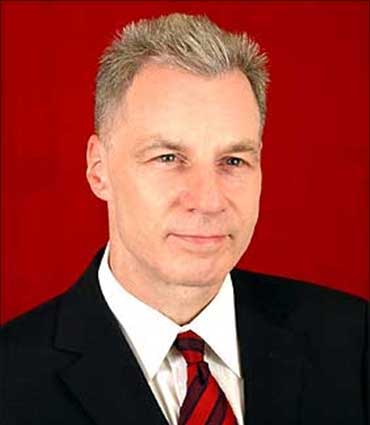
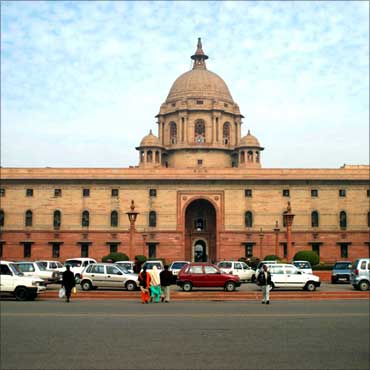
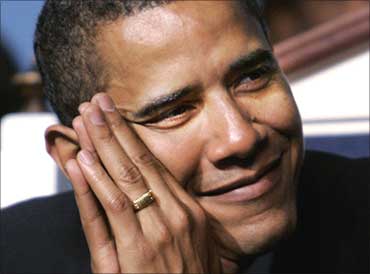
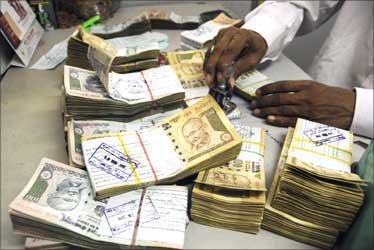
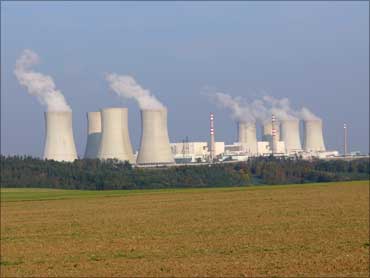
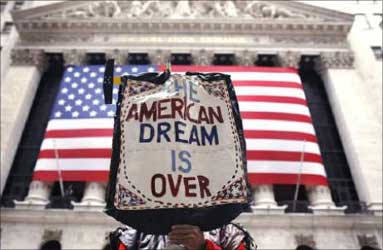
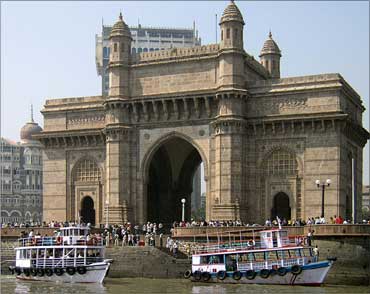
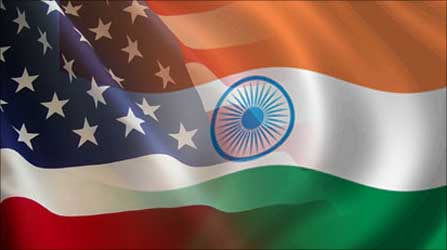
article